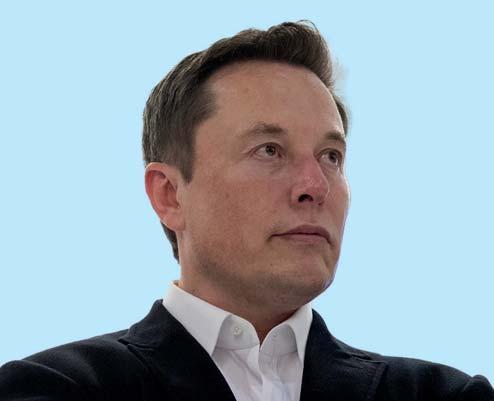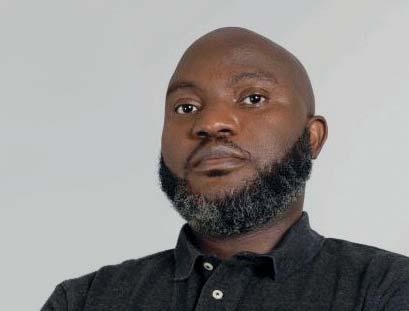
26 minute read
Entrepreneurs
MALI ENTREPRENEUR
Samba Bathily Mr. Can Do
Advertisement
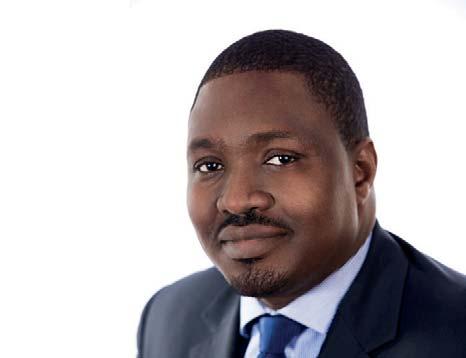
In 2004, Samba Bathily brought all his ventures under the umbrella of Africa Development Solutions (ADS) Group, which must have been handy for observers of the energetic entrepreneur.
The sheer range of Bathily’s exertions is mind-boggling; under its roof, ADS has Multi Industries Group, a solar manufacturer; Africa Digital Solutions, which provides digital services to both public and private sector clients; NBA Africa, which supports sports development; AfroCreativeEcosystem, a platform to forge connections between African entertainers, including the delightful Floating Music Hub in Cape Verde to support the music industry in Africa; and perhaps most famously, Solektra International, the power behind Akon Lighting Africa, which is promoting and providing solar power to nearly 2,000 African communities.
These are only some of the group’s access to water, construction and real estate, education and youth employment, automobile and logistics, processing industries and franchising.
But Bathily stands out for much more than being a visionary who gets things done – he delivers on all his ambitions. Recently, since he asked his children where to go on holiday and they all mentioned countries outside Africa, he has made it his mission to create a programme to better promote our cultural heritage and diverse continent, committing $1m of his own money to ground.
He is a true pan-African who thinks that Africa has lost its way because we as Africans fail to connect with our own culture.
This is why he is one of the UNDP’s group, where he is particularly prominent.
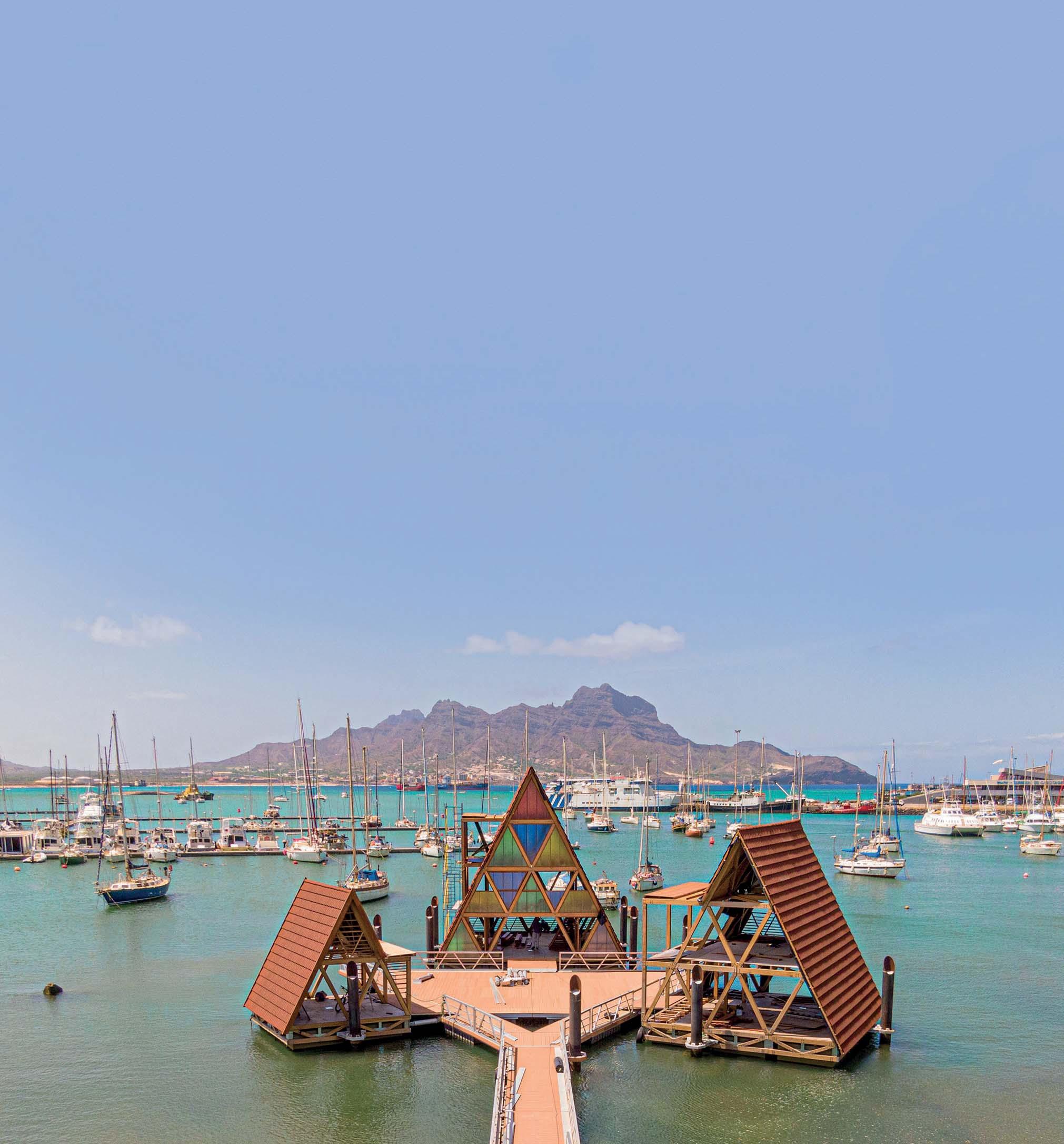
Bathily is a true panAfrican who believes Africa has currently lost its way because we as Africans fail to connect with our own culture.
NIGERIA TECH ENTREPRENEUR NIGERIA CEO, ACCESS CORPORATION
Olugbenga Agboola Riding out the storms

Olugbenga Agboola lived in interesting times this year. The CEO of one of Nigeria’s and perhaps Africa’s most was thrown into the harshest of spotlights when he was accused of interest, workplace bullying and sexual harassment.
For a moment, it looked as if he was about to lose it all. In an email to his colleagues, GB, as he is known in the industry, denied the charges and went back to work. Flutterwave has remained in business and even thrived.
In the last quarter, the company application, this time one that eases the process by which Africans in the diaspora can send money back home. For anyone looking for an indication that it retains its ambition to become the most ubiquitous payments solutions provider on the continent, this might be it.
There are lessons to be learnt from the Flutterwave experience, not least with regard to the regulation and oversight of start-ups. If GB’s missteps lead to better oversight of the Nigerian start-up space, he may have bequeathed yet another legacy, albeit unwittingly.
Herbert Wigwe Colossus of

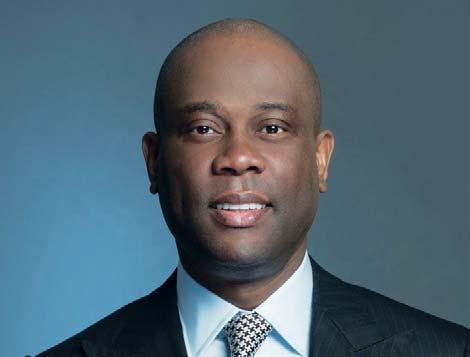
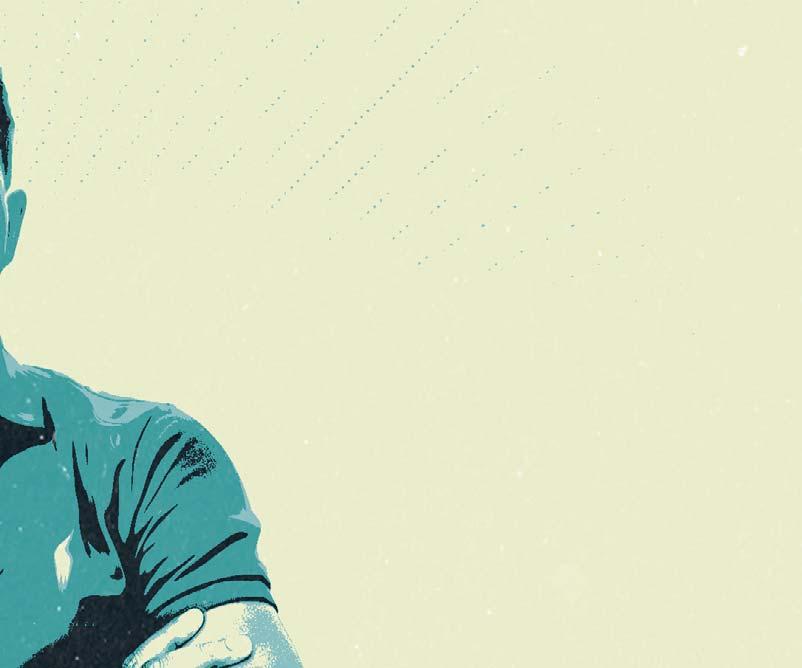
An estimated 900,000 businesses globally now use Flutterwave to process payments in 150 currencies and across diff erent payment modes.
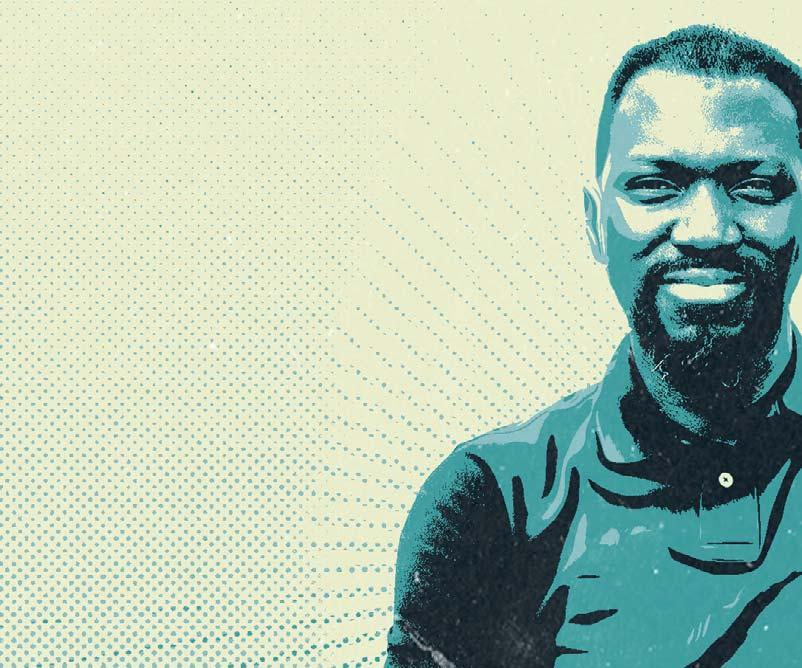


Herbert Wigwe is credited with one of the most transformational changes Africa. With outstanding stints at Coopers & Lybrand, Capital Bank and GT Bank under his belt, he spotted an opportunity and teamed up with his long-time business partner Aigboje Aig-Imoukhuede to take over a small commercial bank. That bank, Access Bank, would grow very quickly under their stewardship.
Today Access is a stalwart in banking and its ambitions seem to grow year on year. 29m customers in 600 branches across six continents. Its acquisition drive has not diminished and it is buying up assets in faraway markets, turning it into a global African actor of reference. The bank’s impact can also be seen in its client roster, which includes some of the heaviest hitters in African business, from construction through telecoms to the energy sector.
Wigwe decided to step down as the bank’s CEO this year – a role he had held since 2014 – two years before the mandatory end of his 10-year term, but is now Group CEO of Access Holdings (trading as Access Corporation), which takes over Access Bank and other portfolios – making it perhaps the in Nigeria. “This natural evolution of our company will ensure that we continue to use digital tools and our our customers’ lifestyles outside of the banking system,” he said at the launch of the corporation.
His latest move indicates that he still has appetite for more and will remain years to come.
GHANA FOUNDER, MPHARMA
Gregory Rockson Dr Feelgood
NIGERIA TECH ENTREPRENEUR
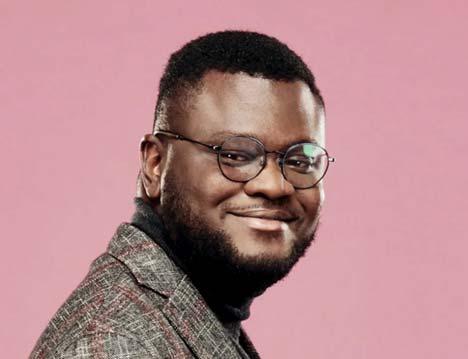


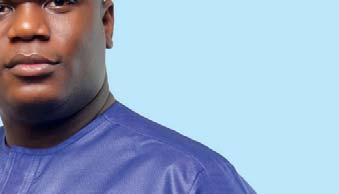
In 2013, Ghanaian Gregory Rockson founded mPharma to provide a monitoring system that would connect patients, hospitals and pharmacies, assuring patients of reliable access to authentic drugs.
Less than a decade later, the company caters to more than 100,000 patients every month, and it looks like it’s only getting started. Supported by receptive investor sentiments – it raised $35m in January 2022 – the company has embarked on an ambitious expansion drive.
The recent acquisition of a majority stake in Nigeria’s HealthPlus mirrors similar forays into Uganda, where it bought 55% of Vine Pharmacy, and Kenya where it acquired Haltons Pharmacy. This to Rockson’s leadership and his missionary zeal to provide quality care to African patients where they are.
The company is now present in Nigeria, Zambia, Kenya, Uganda, Ethiopia, Gabon, Rwanda, Malawi and Ethiopia. Gregory’s stated intention of making Africa healthier might seem overly broad but his commitment is evident. And, as a partnership with the Gabonese Strategic Investment Fund which saved the government 30% in drug procurement costs shows, he can be just as good for a In 2015, Tosin Eniolorunda, following a six-year stint as a product manager and software architect at Interswitch, set up TeamApt to provide Digital Banking, Digital Business solutions and Payments Infrastructure for users and businesses, taking advantage of a growing appetite for cashless transactions gripping the continent.
Less than a decade later, the company is said to be the largest provider of agency banking in Nigeria. Its services are used by more than 14m Nigerians every month and 400,000 businesses in the country rely on it to process transactions on a daily basis.
All told, $100bn worth of transactions are processed by the company every year over its two products – Moniepoint and Monnify – bringing in, according to the company, some $200m in revenue every year. And investors still see space for growth.
This year, TeamApt was the
QED, one of the largest venture capital funds in the world. welcome boon going forward, as Tosin continues to give free rein to his ambition and continues to pursue audacious goals in a fastdeveloping market.


A decade since startup, Tosin’s TeamApt is leading agency banking in Nigeria, processing $100bn of transactions per year.
COTE D’IVOIRE INVESTOR
Laureen Kouassi-Olsson Scaling African luxury
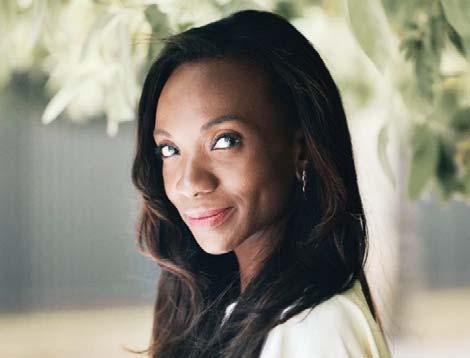
French-Ivorian Laureen Kouassi-Olsson, a Harvard-trained specialist in private set her sights on creating an African version of the global luxury goods conglomerate LVMH, which groups such brands as Louis Vuitton, Moët Hennessy, Christian Dior, Fendi, Givenchy, Marc Jacobs, Stella McCartney and some 60 other high-end luxury names.
Her vehicle is the Mauritiusbased Birimian investment fund: “I don’t want people to think of it as an African LVMH, but rather as a company having the ambition to become an LVMH, dedicated to promoting the African Heritage in a contemporaneous manner.”
Kouassi-Olsson gained valuable while working with the Paris-based Amethis before she left to start her own venture.
Birimian invests long-term equity in African companies such as Ghanaian luxury brand Christie Brown and Ivorian-American designer Loza Maléombho.
Birimian has formed a partnership with Institut Français de la Mode, to launch African designers and brands and other organisations such as Federation de la Haute Couture et de la Mode.
Kouassi-Olsson states: “We are and services and holding company dedicated to African heritage brands to promote, develop, sustain in the long run – to make it the Chanel, Dior, Louis Vuitton of tomorrow, the luxury brands of tomorrow.” About time too, we say.
ETHIOPIA IMF
Abebe Selassie Keeping cool in the eye of a perfect storm




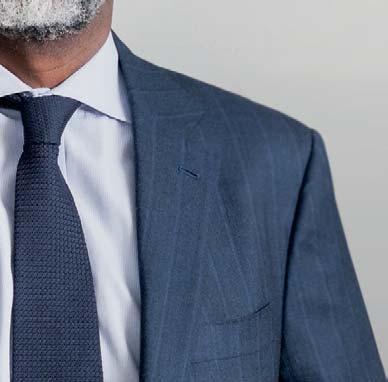



In nearly three decades at the IMF, Abebe Selassie may have thought he had already seen it all when he was appointed head of the Africa department in 2016. He was after all the mission chief in Portugal during the Eurozone crisis, an extraordinary period when the Euro economy teetered on the brink and leaders scrambled around for last- minute solutions.
But that may have only been preparation for the current moment of poly-crisis, as some have referred to the mix of pandemic-related sluggishness, and debt crises.
Add to that the growing calls for architecture, at the centre of which sit the World Bank and the IMF, and you have a perfect storm.
Abebe’s task has been to reassure countries in the global South that the IMF has indeed come some way from its hand-me-down prescription era of the 1980s and 1990s, while also making the case on their behalf that more has to be done and faster. Most importantly, he will have to lead on designing new interventions to support the poorest countries and literally save lives that are at risk from poverty, disease and climate risks.
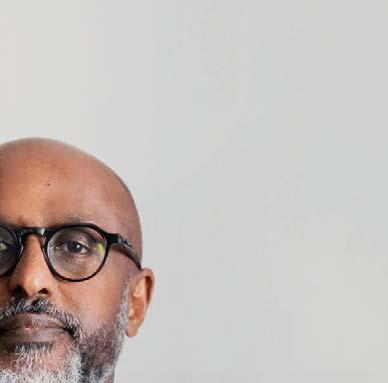
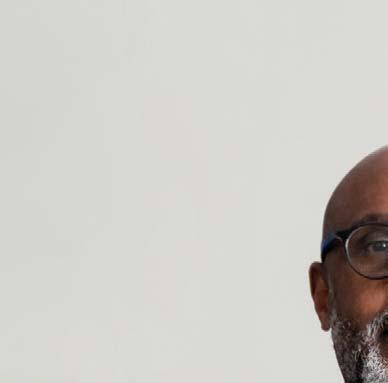


NIGERIA ENTREPRENEUR
Femi Otedola Business mogul with wide appeal
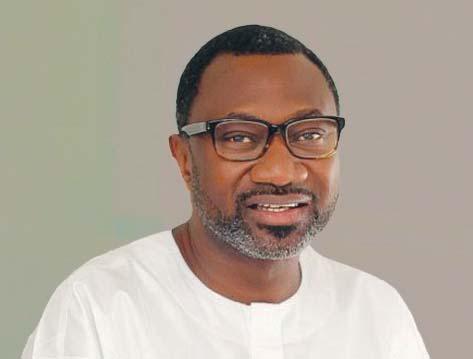


Selassie’s role involves leading interventions to literally save lives that are at risk from poverty, disease and climate risks.


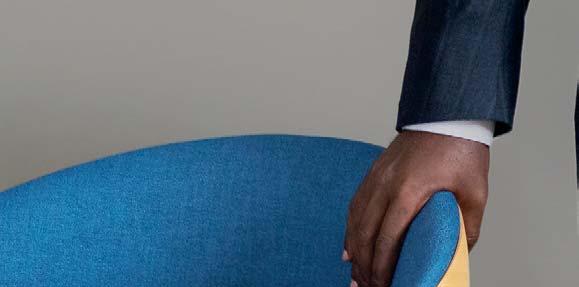
Femi Otedola’s social media presence demonstrates his tech-savvy clout with new media. But he is a serious businessman who has had tremendous successes in the business arena over the decades.
Zenon Petroleum, which he controlled for years, was a dominant player in the downstream oil and gas sector in Nigeria, supplying some of the biggest customers in the country.
Prior to that, he led the restructuring of African Petroleum, a subsidiary of British Petroleum. Forte Oil, the result of that restructuring, also became a own line of engine oils.
These days, Femi has his eyes on the power generation game. His company,
Geregu Power went public this year, listing on the Nigerian Stock Exchange at N100. This adds to an already bulging portfolio that includes Previous ventures attest to his sense of timing and strategic nous. Which means that the coming years may just see another big break for the mogul. One thing is certain, it will all be smartly documented using
Instagram or whichever medium he at the time.


ZIMBABWE FOUNDER, CASSAVA TECH
Strive Masiyiwa Rewiring African development
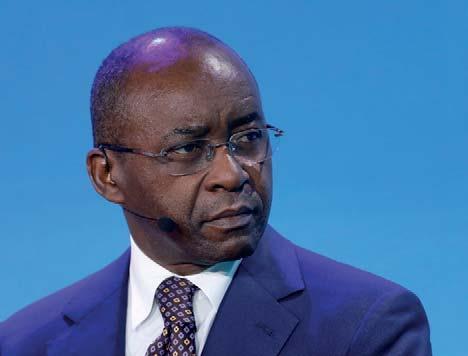
Strive Masiyiwa made his fortune providing access to mobile phone services to people in his native Zimbabwe. Born in a poor township, he moved to the UK where he obtained his education, before returning to Africa with an engineer’s training and an entrepreneur’s ambition and grit.
Strive would overcome the stumbling blocks placed in his way to launch his service, a stunning achievement in and of itself. His business grew to become one of the biggest in the region and cemented his place as one of the master spirits of the technology revolution, whose legacy is a continent that is steadily bridging the digital divide.
His investments have since catapulted him into the top echelon of global capitalists; he is credited with being include Liquid Intelligent Technologies – a subsidiary of Cassava Technologies - which recently announced plans to invest $19.7m to deliver a Software attempt it.
Strive founded Cassava Technologies, headquartered in London, last year. It of continental scale, with operations and activities in most African countries. Its product segments provide digital solutions to over 1m enterprises and enable access to the internet for over 500m people. Its Sasai Super App is services for over 75m customers across Africa by 2025.
At only 61 and on the board of Foundation, he clearly retains the drive ICT growth trajectory and there is no reason to believe he won’t.
MOROCCO CEO, OCP
Mostafa Terrab Fertilizer baron to the rescue
The Ukraine war has brought into sharp focus the critical role fertilizers play and perhaps even more importantly, the need to diversify sources, which are overly concentrated in Russia and its neighbours. As sanctions from the war impacted fertilizer exports from the region, the supply shortages sent prices rocketing. In Morocco, the state-owned took note.
Long a global player, the phosphate fertilizer-maker had already seen an era of transformational growth under Mostafa Terrab, its CEO and Chairman. Following turns as an advisor to the Moroccan cabinet, SG of the Middle East/North Africa Economic Summit, and DG of the Moroccan Telecommunications Regulatory Agency, Terrab went to OCP with a zeal to transform, which was manifested in
Under his leadership, OCP has ably taken advantage of the global supply chain issues, seeing exports for its fertilizers rise by 77% for Q2 in 2022 against the same period last year.
Yet amidst the market constraints, OCP has committed to helping African governments tackle food security challenges, through its OCP Africa subsidy. The company gave multiple fertilizer donations to African countries in 2022, including Rwanda and Kenya, providing farmers with free and discounted fertilizers.
And in its most recently announced measure, the company will supply a remarkable 4m tonnes of fertilizers for African farmers in 2023, more than double its supply to the continent in 2021. The new programme seeks to boost yields for 44m farmers across 35 African countries.
With the essential fertilizers in such short supply, Africa is grateful to Terrab for his decision to ensure that the continent’s food security is a high priority.
SOUTH AFRICA FUND MANAGER
Lindeka Dzedze Leading drive for FemFunds
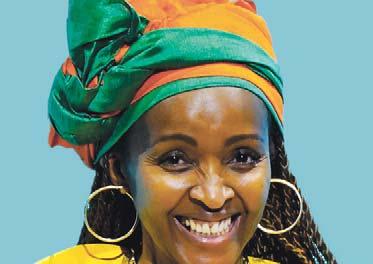

services has been about transformation as much as it has been about excellence. Her record can be mapped through her rapid rise across stints at JP Morgan Securities, Andisa Securities and Credit Suisse Standard Securities before she she is now Global Markets Head of Institutional Clients.
Perhaps, however, it is her role as chairperson of the African Women Impact Fund Executive Committee, an initiative of the UN Economic Commission for Africa, the Millennium Development Authority (MiDA) and Standard Bank itself that will enable her to make the most transformational impact.
The Fund is intended to generate a billion dollars of investment and direct it into women-led funds in Africa. This will help correct the gender imbalance in fund management, where less than 1.3% of the $69.1trn assets under management go to women’s or women-led management. The Fund has already attracted support and in September this year, announced the The vision is that these funds will be channelled into highimpact projects across the continent, especially those attempt not only to alter the economic structure of the continent, but women’s role in it.
NIGERIA CEO, AFC
Samaila Zubairu The solutions champion
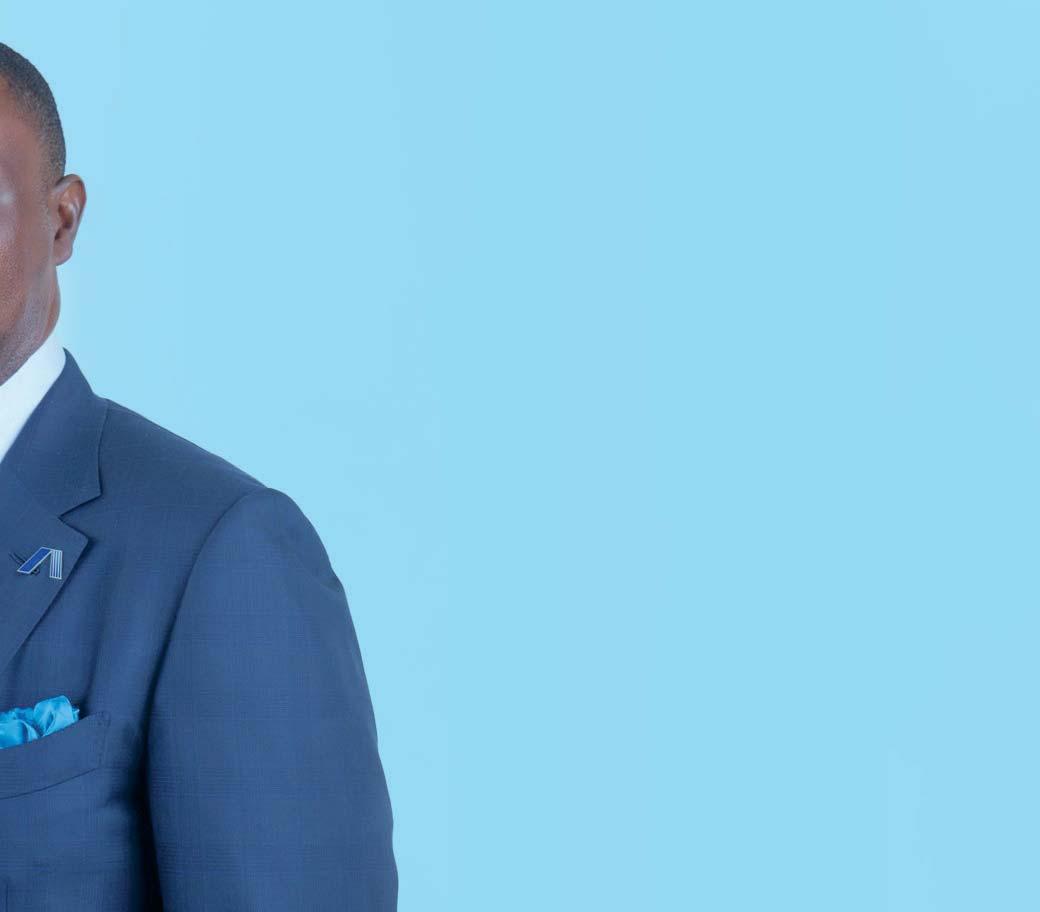
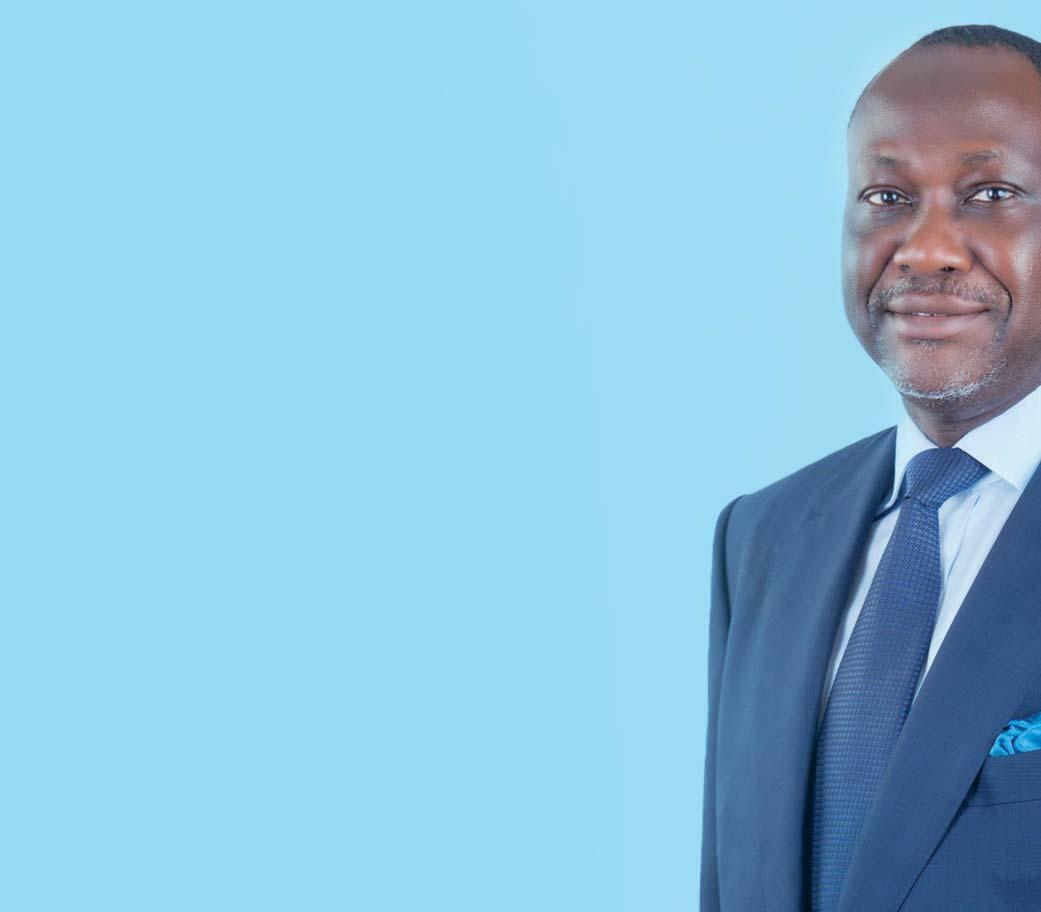
Samaila Zubairu has emerged as one of the leading voices shaping the discourse on Africa’s economic future. From his position as President and CEO of the Africa Finance Corporation (AFC), he also has considerable clout when it comes to making the decisions that will determine that future.
It is fortunate then that he has a record of delivery in some of the continent’s toughest berths. As CFO of Dangote, he oversaw the largest Africa and the company’s unbundling into separate listed entities on the Nigerian bourse.
On his way to AFC, he led the establishment of a joint venture between Old Mutual and Africapital Management Limited, where he was the CEO, to develop the Nigerian Infrastructure Fund 1 to back investments across the sub-region.
Since 2018 when he took over at the AFC, Samaila has refocused the entity the transformation of African industry.
Arguably Zubairu’s most important intervention is to show how Africa is the solution to the world’s problems, clearly laying out his thesis around climate change, energy and reliable supply chains. He has been one of the biggest proponents of a fair energy transition and has really created a momentum around that, aside from in his day-to-day job. It’s been instrumental in how others are behind this cause.


Under his leadership, AFC has played a key role in fi nancing critical infrastructure and the transformation of African industry.

NIGERIA LAWYER
Chinelo Anohu Rooting for women entrepreneurs
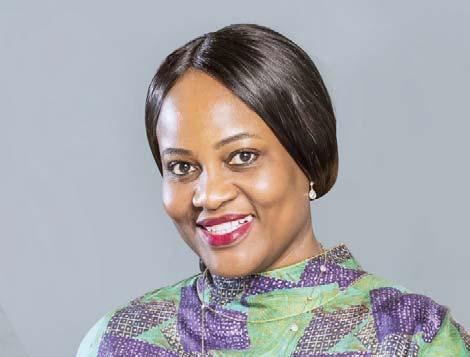
Chinelo Anohu is the right person in the right job at the right time. A lawyer by training, she earned her stripes when she led the transformation of the National Pensions Commission in Nigeria, and her current position at the Africa Investment Forum where she is the Senior Director places her in the eye of the tempest. The Africa Investment Forum is Africa’s investment marketplace, championed by the African Development Bank.
The global economic situation is a disincentive to investment in emerging markets and international capital is already deserting the continent. Nevertheless, Anohu has been focused on her task and has managed to eke out some important wins.
The Forum itself is attracting more interest, attention and partnerships. It also means that she can support women entrepreneurs, about whom she is extremely passionate. Women-led investments are going to be extremely important to the recovery, especially in Africa and Anohu’s role and decisions will gain even greater When the whole world has been retreating to their home markets,
Anohu has often appeared as one the case for Africa to international investors. Her work is starting to yield results. She is raising the stakes, knowing that the platform she leads is critical to unlocking the problems, at government or other levels, that are holding back projects and investments. She was recently invited onto the advisory committee of the US
Exim Bank, an important player that supports investment from US corporates.
ZIMBABWE GOOGLE
James Manyika Giving Google’s AI a human face
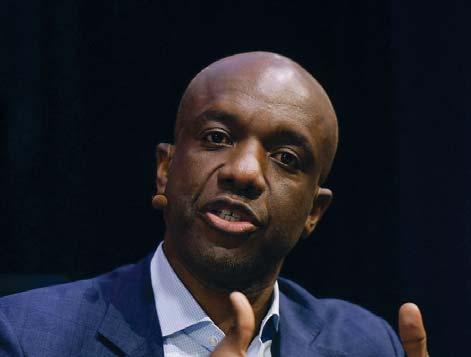
After nearly three decades at McKinsey, 20 years of which were spent at the McKinsey Global Institute, where he was appointed director in 2009, James Manyika joined Google in January this year as senior vice-president for technology and society.
A graduate of the University of Zimbabwe where he got a degree in electrical engineering, and the University of Oxford, where he got two masters and a PhD, he has long been known for his research work in innovation. In 2011, President Barack Obama appointed him to serve on the Digital Economy Board and the National Innovation Board.
In his new role, which straddles philanthropic and operational functions, James will have to grapple with the appointment comes at a critical time, when the acceleration of innovation is drawing some disquiet about the potential harms that could arise from it.
He will have to bring his wide breadth of experience to bear on this critical role, which could shape how humans interact with increasingly powerful machines and with one another.
Fortunately he has the ability – and Google the resources – to take on this task, as demonstrated by a $25m sustainable development, which he has already launched. Admassu Tadesse’s stewardship of the Trade and Development Bank (TDB), formerly known as PTA bank, has seen it rise to become one of the top investment banks in the continent. The bank services Eastern and Southern Africa and is the the Common Market for Eastern and Southern Africa (COMESA).
Steady ratings upgrades have allowed it to build its muscle and place transformational infrastructure, which will be critical for the continent’s ability to build resilience to climate change. The bank’s membership now include 22 states, 19 of which are COMESA members.
Prior to joining the bank, Tadesse worked as an advisor, analyst and specialist with various international funds and organisations in New York, before becoming Executive VicePresident at the Development Bank of Southern Africa.
His strategy has been to build institutions, notably the African
Development Bank, which has been a
This year, the bank welcomed an $8m investment from Agaciro Development
Fund (AgDF), Rwanda’s sovereign wealth fund, adding it to the list of its institutional investors, which include the People’s Bank of China, the Arab Bank for Economic Development in Africa (BADEA) and several pension funds around Africa. These small but important steps are changing the investment landscape. With this growing clout, Tadesse and the bank will continue to have continental economy.
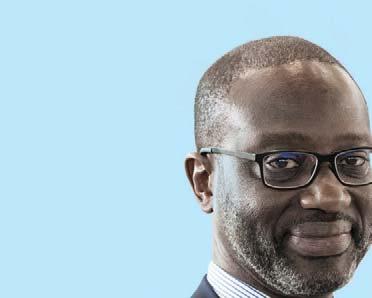
CÔTE D’IVOIRE BANKER, INVESTOR
Tidjane Thiam Ready for the next spring forward?
ETHIOPIA PRESIDENT, CEO, TD BANK
Admassu Tadesse Changing the rules of investment
Tidjane Thiam’s exit from Credit CEO, may have seemed like a career that had seemed almost magical up to that point having a fatal confrontation with reality. Before that moment, he had distinguished himself at Aviva where he held various positions, and at Black person to be named Group Chief Executive.
At Credit Suisse, he had launched a transformational drive that was well received by the markets. The term however came to a controversial end when he abruptly quit following a confrontation with a former colleague.
He fell on his feet, with many organisations across various sectors calling for his help. He sits on the board of some of the world’s biggest blue chip companies, such as Kering, the luxury goods group that owns Gucci. He also rubs shoulders with the world’s movers and shakers, from philanthropist Bill Gates to power brokers in Silicon Valley. It was natural, however, that he would eventually start his own investment company, Freedom Acquisition Corp.
He also advises several leaders, including Rwanda’s President Paul Kagame, who named him Chairman of the board of Rwanda Finance Limited.
In recent times Thiam, who left Côte d’Ivoire after the 1999 military coup toppled the government of which he had been a member, has been teasing a return back to his homeland. While he has remained coy as to his intentions, observers will be watching closely to see where the next chapter takes him.
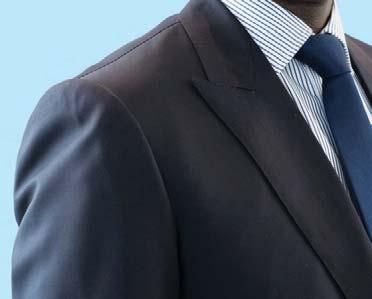

MADAGASCAR CEO, AXIAN GROUP
Hassanein Hiridjee African CEO of the Year
Axian began life as the owner of a small oil mill in the 1920s. Three generations later, still controlled by it, the company is a $1.6bn revenuegenerating juggernaut with interests in real estate, telecommunications,
Hassanein Hiridjee, the FrenchMalagasy scion currently at the helm, has supercharged the company’s ambition and is determined to futureproof it in the face of current and impending disruptions.
Keenly focused on climate change and its impact, Hiridjee has boosted the company’s muscle in renewables. It is now the leader in solar in Madagascar, and through its involvement in the ‘WeLight’ programme, a joint venture with developmental partners Sagemcom and Norfund, is bringing energy to small, remote communities in the country.
Hiridjee’s leadership provides a model of how a company can remain rooted in its history and yet be well-prepared for an uncertain future. He was named CEO of the Year at the Africa CEO Forum in June this year.
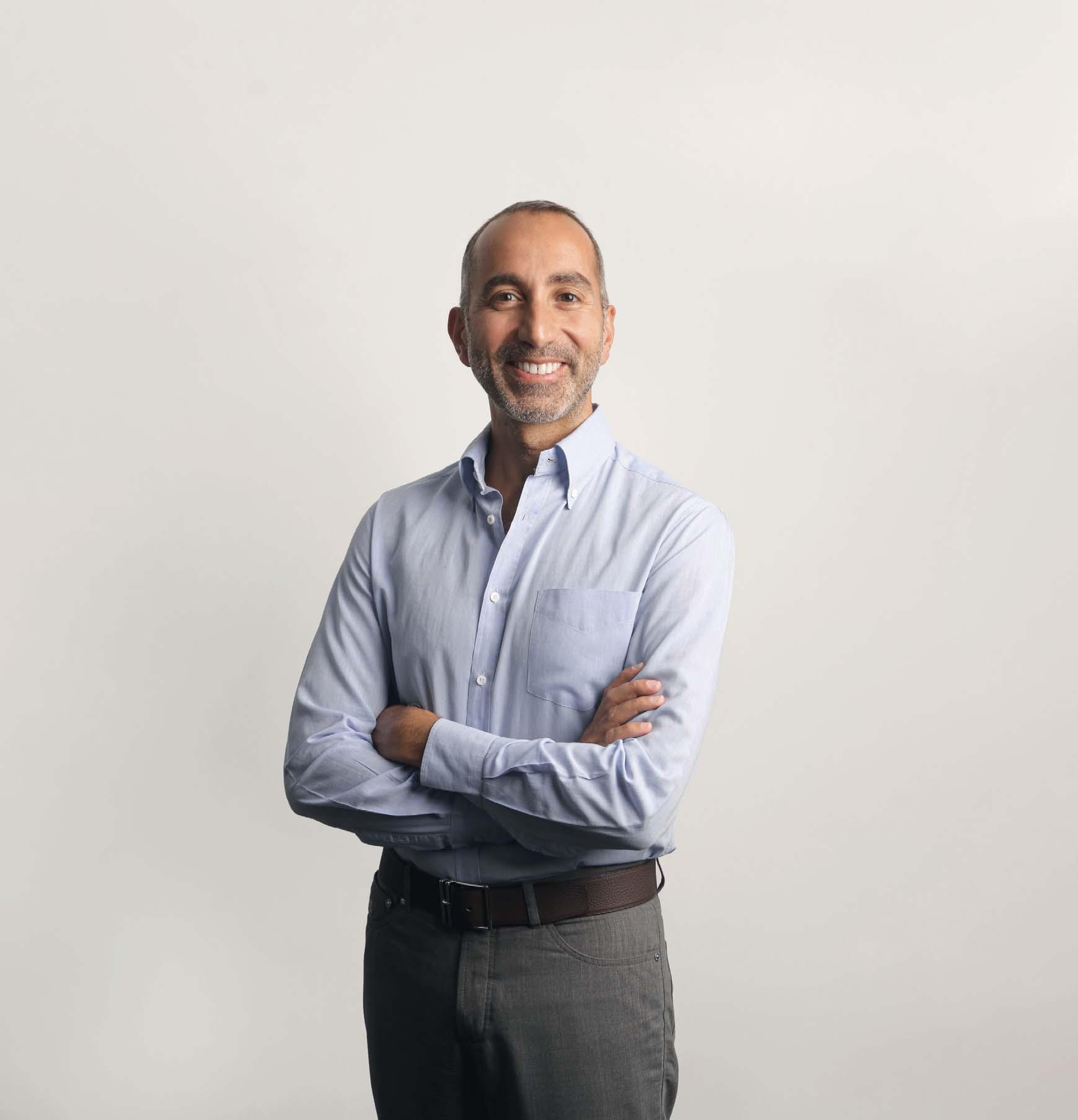
TUNISIA TECH ENTREPRENEUR
Karim Beguir intelligence czar
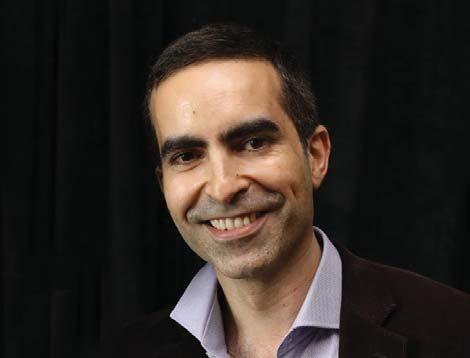
When Insta Deep raised $100m in a second record fundraising round of $100m in January 2022 on the back of a $1bn valuation, it was a vindication of Karim Beguir, a serial entrepreneur with an unrelenting spirit.
Beguir, educated at the most revered engineering school in France, left investment banking in London to start his career as an entrepreneur.
After trying his hand at a number of ventures, he launched Insta
Deep. He has all the attributes of an entrepreneur – the desire to solve problems, a can-do spirit and boundless energy. He’ll admit that key to Insta
Deep’s success is Zohra Slim, his
London, Lagos, Dubai and more recently in the Bay area of California. Insta Deep has had a strong run since €42,000 from a turnover of €2m, but the numbers on the paper were probably just as compelling as the client roster for a company that is barely eight years old. solutions are used by Google and in the wake of the pandemic, the company partnered with BioNTech to develop an intelligent system capable of rapidly detecting the variants of the coronavirus that emerged in waves. The governments of Luxembourg, Germany and the United Arab Emirates are also clients. All of this positions Insta Deep – twice named by CB Insights as one of the most promising start-ups in the world, Karim Beguir, well for a future in which AI will play an outsized role.
ALGERIA FOUNDER, YASSIR
Noureddine Tayebi Transforming Africa’s tech scene with a Silicon Valley mindset
SOUTH AFRICA ENTREPRENEUR
Elon Musk The
NIGERIA TECH ENTREPRENEUR
Dozy Mmobuosi Tycoon with the common touch
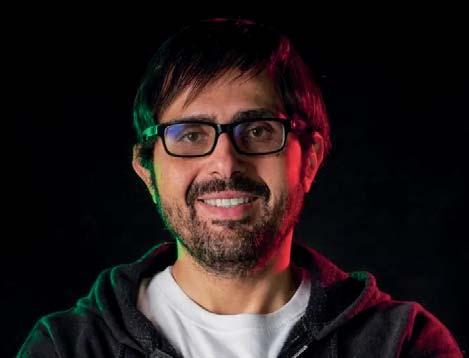
Tayebi is the founder of Yassir, a super on transportation - including ridehailing and last-mile delivery - which became the most valuable start-up in North Africa after raising $150m in Series B funding in November. In in around $193m from funds based in Silicon Valley, a place which Tayebi is rather familiar with.
Born in the Mediterranean coastal city of Algiers, he started his professional career in California in the 2000s after graduating from Stanford. For several years, the computer whizz worked as a research engineer and team lead for the US multinational Intel.
Tayebi rapidly embraced California’s entrepreneurial scene and launched working as a researcher. In 2017, driven by the desire to contribute to his home region’s economic and technological development, he founded Yassir – which translates as “making things easier”.
Today, Yassir is the market leader in the Maghreb, with 85% of market share, and has been downloaded 3m times. The company operates in six countries come from the continent, a stat which Tayebi is particularly proud of.
He is now on a mission to expand the business both regionally and in terms of services, opening up to e-commerce management for professionals (Yassir Business) and establishing relations between small traders and large-scale distribution chains to manage orders (Yassir Express). Arguably, Yassir’s story is only just beginning. Elon Musk’s chaotic acquisition of social year. This included taking over the company after seeming to have changed an entire continental operation (Africa); sparking a mass exodus after a mistimed (Tesla) to underwrite his new purchase; defending his emoluments package in front of the US Securities and Exchange Commission; and getting involved in Twitter spats on a daily basis. Such outcomes and also being the world’s modestly vigorous diary; for Elon, that was just two weeks in November.
The South Africa-born engineer and massively successful entrepreneur has done truly transformational things years to come but his wild antics and unconventional approach continue to divide opinion sharply.
In his Twitter acquisition and the very public missteps resulting from it, naysayers may feel vindicated that he does not, in fact, walk on entrepreneurial water. But betting against a man who sends rockets into space is always a risky proposition. Whatever way this goes, he will certainly continue to hold the world’s attention, which might be just what he wants. Dozy Mmobuosi is a highly respected tech entrepreneur working for economic and social upliftment in Africa through the application of appropriate technology.
Mmobuosi co-founded Tingo Mobile as a ringtones supplier in 2001. Its parent company, Tingo Inc, a leading technology and device-as-a-service platform, now has revenues reported at around $1bn and has been considering launching an IPO on the New York Stock Exchange.
In December 2021, he launched the Dozy Mmobuosi Foundation to address healthcare challenges in Nigeria and quality education to poorer Nigerians.
In June the Foundation announced it was setting up a $10m initiative to provide free prostate cancer screening across Nigeria, with the pilot in Lagos. Mmobuosi revealed that he had nearly lost his own father to the disease.
Mmobuosi is also launching the Dozy Mmobuosi Super Cup, a competition with N100m ($225,377) in prize money, which will take place before the start of Nigeria’s regular football season and is aimed at boosting the professional game in the country. There is talk that he is looking to investing in a team in a European football league.
Mmobuosi, who holds a doctorate in rural advancement from the Universiti Putra Malaysia, is determined to nurture more African entrepreneurial talent and leadership skills through his foundation’s scholarship and sponsored programmes at leading
African universities.


